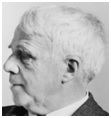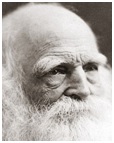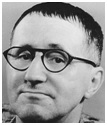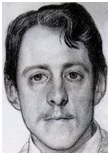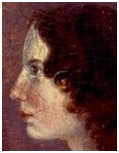|
 |
|
 |
Poetry - Change
Lao Tzu (6th Century BC), All Things
Pass The Chinese philosopher (pictured right) reminds us that everything is constantly changing: All things pass A sunrise does not last all morning All things pass A cloudburst does not last all day All things pass (first five lines)
W. B. Yeats (1856-1939),The Second Coming (1921)
Turning and turning in the widening gyre The falcon cannot hear the falconer; Things fall apart; the centre cannot hold; Mere anarchy is loosed upon the world, The blood-dimmed tide is loosed, and everywhere The ceremony of innocence is drowned; The best lack all conviction, while the worst Are full of passionate intensity. (first verse)
Good people:
People are led by the “Second Coming” of a new evil messiah (a “rough beast” at the end of the poem).
W. B. Yeats Long-Legged Fly (1939)
In this poem Yeats emphasizes the importance of putting thought into action in times of change. Yeats says the Roman general, Caesar, and the Italian artist, Michelangelo, are both brilliant, because:
Like a long-legged fly upon the stream His mind moves upon silence (lines 9 and 10).
W. B. Yeats, The Great Day (1938) In this poem Yeats describes the human cost of revolutionary change and in the last line wryly observes that the oppressed can easily become the oppressors.
A beggar upon horseback lashes a beggar on foot. Hurrah for revolution and cannon come again! The beggars have changed places, but the lash goes on. (complete poem).
Robert Frost (1874-1963), The Road Not Taken (1916) Frost's (pictured right) last three lines are some of the most famous in American poetry:
Two roads diverged in a wood, and I - I took the one less travelled by, And that has made all the difference.
Many people interpret this literally, saying that you should;
But earlier in the poem he tells the reader that he has:
You can often:
We can’t always be a hero.
Robert Frost, The Black Cottage (1914) In this poem Frost says we can exaggerate change.
Most of the change we think we see in life Is due to truths being in and out of favour. (lines 109 and 110)
Rudyard Kipling (1865-1936), The Way Through the Woods (1899) The English poet refers to the loss of purpose and direction caused by a devastating event (in Kipling’s case the death of his son in the First World War): There is no road through the woods (the poem’s last line).
William Cullen Bryant (1794-1878), Mutation
(1824) The American poet (pictured right) says that we should welcome change:
Weep not that the world changes — did it keep A stable changeless state, 'twere cause indeed to weep. (last two lines)
Bertolt Brecht (1898-1956), Everything Changes The German poet's (pictured right) last verse shows you must “make a fresh start”, accepting:
What has happened has happened. The water You once poured into the wine cannot be Drained off again, but Everything changes. You can make A fresh start with your final breath. (second and last verse)
Laurence Binyon (1869-1943), The Burning of the Leaves Nothing is certain, Binyon (pictured right) says, except the cycle of nature:
They will come again, the leaf and the flower, to arise From squalor of rottenness into the old splendour, And magical scents to a wondering memory bring; The same glory, to shine upon different eyes. Earth cares for her own ruins, naught for ours. Nothing is certain, only the certain spring. (last verse)
Emily
Brontë (1818-48), The Night Is Darkening Around Me (1837) The English poet and author of Wuthering Heights (pictured right):
In the last line, she refers to
The night is darkening round me, The wild winds coldly blow; But a tyrant spell has bound me, And I cannot, cannot go.
The giant trees are bending Their bare boughs weighed with snow; The storm is fast descending, And yet I cannot go.
Clouds beyond clouds above me, Wastes beyond wastes below; But nothing drear can move me; I will not, cannot go. (complete poem) |
|
|
||
|
|
|
||
|
||
| Copyright © wisdomtowin.com All Rights Reserved | ||
|


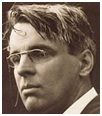 The Irish poet (pictured right),describes how civilized order can change into immoral chaos
(gyre in the first line means whirl):
The Irish poet (pictured right),describes how civilized order can change into immoral chaos
(gyre in the first line means whirl):